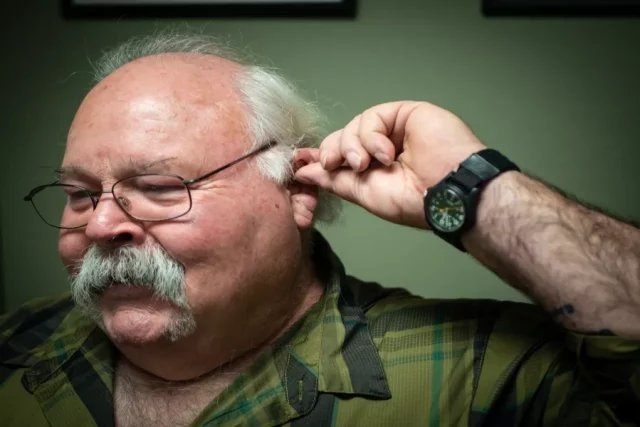As people get older, their likelihood of suffering from hearing loss rises. Some view their hearing loss as a mere inconvenience and put off getting hearing tests even after they’ve noticed there is something wrong. Unfortunately, they’re failing to understand how important good hearing is to the maintenance of their quality of life.
How To Identify The Signs Of Hearing Loss
The first step towards improving hearing is learning how to identify the signs of hearing loss. Because this problem typically starts out minor and gets worse slowly, it’s easy for people to miss the signs of worsening hearing loss in themselves. People who notice any of these symptoms will want to schedule a hearing test if they experience the following.
- Frequently misunderstanding what people are saying.
- Asking people to repeat themselves.
- Difficulty using the phone.
- Finding it challenging to keep up with conversations.
- Having to concentrate so hard on conversations that they become stressed.
- Turning the volume on the television up higher than other people would like.
Friends and family members often notice a person’s worsening hearing loss before they do. Some people feel threatened or afraid when others mention visiting an audiologist for a hearing test, but it’s the only way to start getting back on track toward having a good quality of life.
Why Improved Hearing Enhances Quality Of Life
Visiting an audiologist for a hearing test is the first step towards learning how to live better with hearing loss. Hearing aids can be expensive, but most find that they are well worth the money and consider them an investment in their ongoing happiness. This makes sense given that hearing loss has been shown to:
- Improve relationships.
- Increase intimacy.
- Make communication easier.
- Give people a sense of control over their lives.
- Encourage greater levels of social participation.
- Increase earning power in people who are still working.
- Provide greater emotional stability.
Hearing aids provide all of these benefits by restoring as much as possible of a person’s ability to communicate and participate actively in life. After getting a hearing aid, wearers report being able to participate fully in their relationships, stay connected with their loved ones, and avoid feeling like a burden to those around them. Treating hearing loss can even reduce the risk or delay the progression of cognitive decline.
Restoring Hearing Improves Mental And Physical Health
Restoring a person’s hearing doesn’t just reduce their risk of worsening cognitive decline. It can also help to keep symptoms of depression at bay by reducing social isolation and encouraging healthy participation in family life, work, and other situations that require frequent conversations.
Decreasing feelings of social isolation by improving hearing loss can even help to prevent the onset or worsening of many strictly physical conditions. Researchers have uncovered a connection between seniors’ social status and the risk of developing serious chronic diseases, including cardiovascular disease, strokes, obesity, diabetes, and others. Loneliness has also been associated with a 50% increase in elderly people’s dementia risk.
Get On The Path To A Greater Quality Of Life
The ability to hear isn’t just important to elderly Americans. Anyone who is concerned about hearing loss should schedule an appointment with an audiologist. There are ways to manage all levels of hearing loss that can help to restore relationships and improve quality of life at any age, so don’t be afraid to get the process started by scheduling a hearing test.














